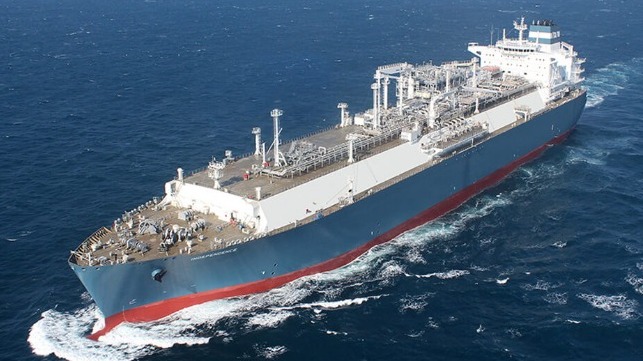Shell to Run Fuel Cell Demonstration on Korean-Built LNG Carrier

A demonstration project is being launched to speed up the commercialization of fuel cells for large, ocean-going ships. The project calls for the development and year-long demonstration of a 174,000 cubic meter LNG carrier to be operated by Shell. The demonstration of fuel cells due to launch in 2025 is designed to support the decarbonization of ocean-going shipping.
The agreement signed today in South Korea calls for Hyundai Heavy Industries Group to use fuel cells as an auxiliary power unit (APU) and perform the demonstration for one year on the actual trade route. HHI Group will use a 600KW high-efficiency Solid Oxide Fuel Cell (SOFC) for power generation on the LNG carrier. Shell will be in charge of managing and operating the ship, as well as managing the demonstration project, while Doosan Fuel Cell and HyAxiom will develop and supply fuel cells for the ship. DNV will conduct inspections of the structure and equipment of the demonstration ship for accreditation registration.
The project is starting with a feasibility study and then Connecticut-based HyAxiom will design and develop the SOFC APU incorporating two 300 kilowatts (kW) sub-systems. It will be designed as a demonstration for long-range maritime operations. Doosan will manufacture, carry out factory tests, and deliver the fuel cell while Korea Shipbuilding & Offshore Engineering will assist with the system integration and technological deployment. Shell will be the charterer of the vessel responsible for its operations.
According to the partnership, they expect to collect valuable data on how to further integrate SOFC technology into current vessels. The year-long demonstration test is also designed to provide information on how future vessels can be powered by SOFC technology.

that matters most
Get the latest maritime news delivered to your inbox daily.
“This consortium and the cutting-edge technology we’re pioneering could help deliver less carbon-intensive operations in the near term while unlocking a pathway to net-zero through the blending of conventional and alternative fuels until zero-carbon options are available at scale,” said Karrie Trauth, SVP Shipping & Maritime at Shell “We’re excited to be collaborating with some of the leading names in shipping who share a vision of a zero-emission industry and are working hard to progress shipping decarbonization.”?
This is the latest in a series of projects underway in segments of the maritime industry seeking to advance fuel cell technology. Shell and others are working on retrofitting fuel cells to offshore service vessels operating in the North Sea while another test seeks to deploy a test fuel cell on an MSC Cruise ship. Hyundai, like other shipyards in South Korea, notes that it is also developing its SOFC technologies to promote fuel cell development projects.
